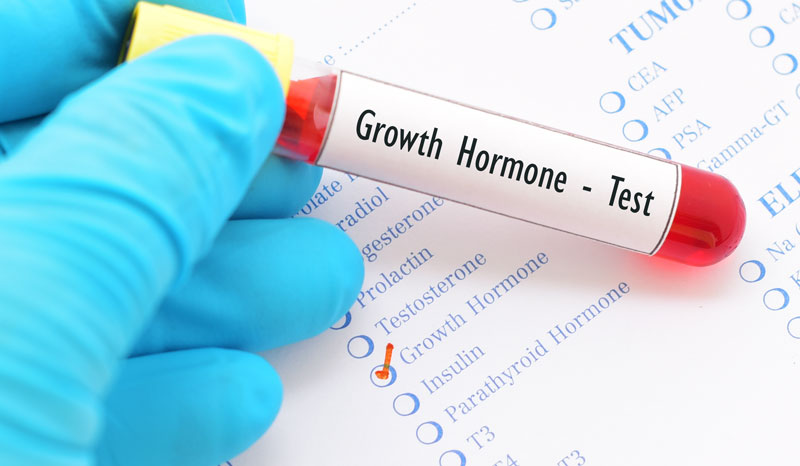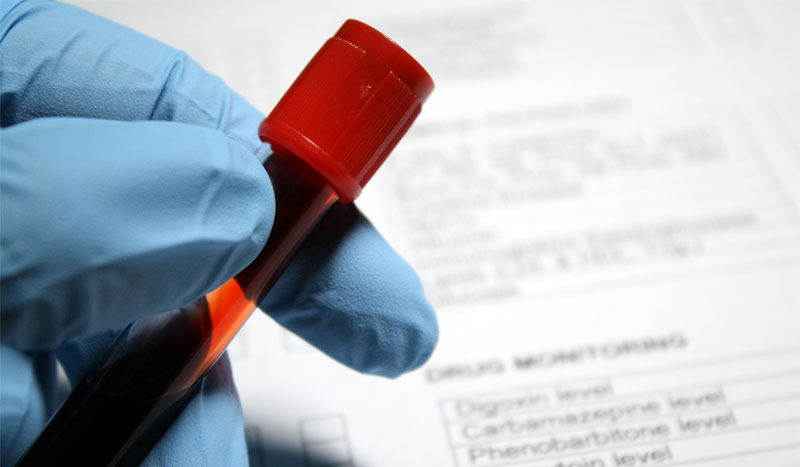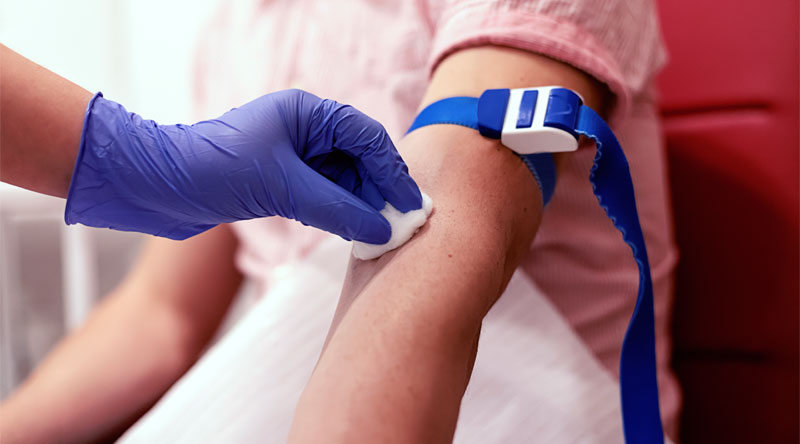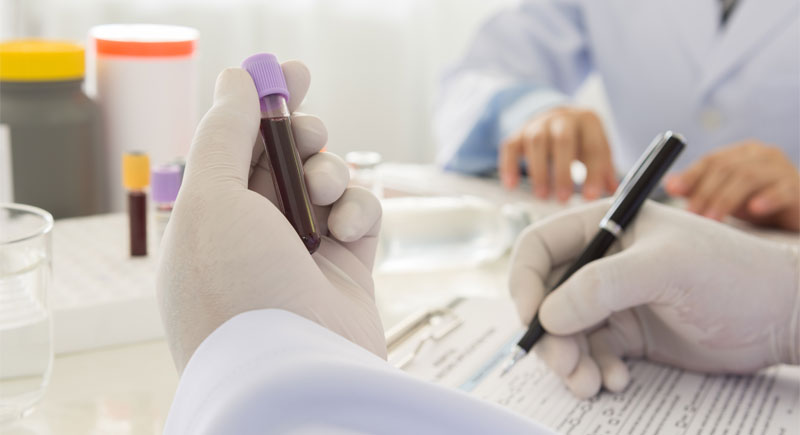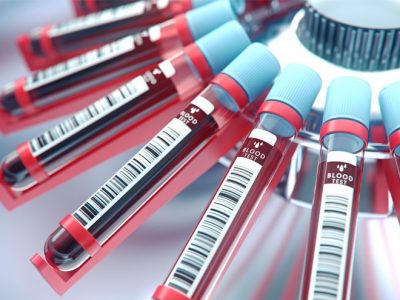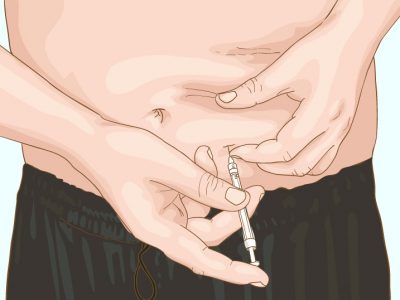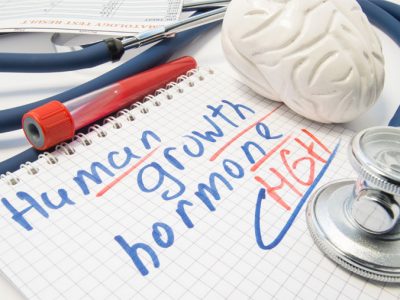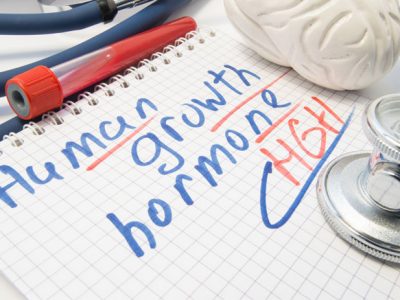- Home
- Growth Hormone
- Growth Hormone
- Growth Hormone Deficiency
- Growth Hormone Therapy
- Growth Hormone Injections
get startedThe Most Effective Hormone Replacement TherapiesBlood Testing for Growth Hormone Levels in Adults
- Growth Hormone Deficiency (GHD) in adults can only be diagnosed using specialized blood tests.
- HGH levels can fluctuate greatly throughout the day, so rather than specifying an exact “normal” HGH level for adults, doctor’s speak in terms of a “normal range.”
- Instead of a test that measures the HGH level in your blood at any given time, to test for GHD in adults, we use a test called IGF-1.
Growth hormone is essential for normal growth in children. Growth hormone, also known as HGH, also plays a critical role in adults. Growth hormone in adults is responsible for your ability to burn fat and build muscle. It is also essential for immune health, sexual wellness, and many other bodily processes.
Growth hormone does decline as you age. Many men and women over 40 could be suffering from growth hormone deficiency, or GHD. In adults, GHD can lead to tiredness, weight gain, lack of energy and sexual health issues.
The only way to know if you have GHD is to have your growth hormone and preferably your IGF-1 levels tested.
Why Get Tested for Growth Hormone?
There are basically three reasons doctors will test for HGH levels:
- To diagnose a GHD
- To evaluate pituitary function
- To monitor whether treatment with Growth Hormone is adequate
What Is the Normal Growth Hormone Level for Adults?
Unlike other some other hormones, HGH levels are not constant in the blood, but can rise and fall during the day. This is why doctors prefer to speak of a “normal” range for HGH levels in adults, rather than pinpoint and an exact “normal” level.
A “normal” hormone range can also vary with advancing age. Your doctor will always take that into account and assess the blood level accordingly.
Since we test for IGF-1 levels to evaluate your HGH production, the following chart (provided by LabCorp) gives the normal IGF-1 levels based on age and gender.
Normal ranges of IGF-1 are measured in nanograms per milliliter, abbreviated ng/mL. This is the unit of measure most commonly used to express drug testing in urine and blood.
Age in yearsMale (ng/mL)Female (ng/mL)31 to 3588−24673−24336 to 4083−23369−22741 to 4575−21662−20446 to 5067−20557−19551 to 5561−20053−19056 to 6054−19446−17261 to 6549−18842−16966 to 7047−19238−16371 to 7541−17937−16576 to 8037−17235−16581 to 8534−16534−17286 to 9032−16634−17890Not establishedNot establishedBy way of comparison, the following chart gives the so-called “normal” adult IGF-1 levels by another quality testing lab – Quest Diagnostics. Quest recognizes that it is only prior to age 18 that there is a significant difference in the normal ranges for males and females, so for adults, they do not differentiate males from females. However, by comparing to the chart above, you can see how the “normal” ranges differ.
IGF-1 Ranges Quest Diagnostics
Age in years(ng/mL)30-39.9 Years53-33140-49.9 Years52-32850-59.9 Years50-31760-69.9 Years41-27970-79.9 Years34-245Over 8034-246This all speaks to just how complex determining what a normal level of HGH in adults is, and is exactly why we do not look at your age and decide what should be the normal range, rather we take everything into account – your age, gender, diet, symptoms, and lifestyle – to determine what should be the “optimal” range for you. Once we determine what your unique optimal level is, we can tailor treatments that will get you in that zone, so you can perform at your personal best, regardless of your age.
HGH levels can fluctuate greatly throughout the day, so rather than specifying an exact “normal” HGH level for adults, doctor’s like to speak in terms of a range.
How Do We Test for Growth Hormone Levels?
Since your growth hormone levels can and do change throughout the day, instead of a test that measures the HGH level in your blood at any given time, we test for the level of IGF-1.
IGF-1 is an endocrine hormone produced by the liver that, along with growth hormone, helps promote normal bone and tissue growth and development. The IGF-1 test is used:
- To help diagnose growth hormone deficiency
- To sometimes diagnose growth hormone excess
- To evaluate pituitary function
- To monitor the effectiveness of treatment
During the test a blood sample will be drawn from a vein in your arm. Since HGH levels fluctuate throughout the day, we do not test for HGH, but rather IGF-1. IGF-1 mirrors HGH excesses and deficiencies, but the level in the blood is stable throughout the day, making it a more useful indicator of average HGH levels than testing for HGH.
We use LabCorp for all of our hormone tests. LabCorp is one of the world’s most respected life sciences companies and medical testing facilities. You can learn more about IGF-1 and the IGF-1 test by visiting the LabCorp website.
How to Prepare for the Test
To prepare for the IGF-1 testing that we do:
- You may be asked to refrain from taking supplements of Biotin(also known as vitamin B7, B8,vitamin H, or coenzyme R), for 72 hrs prior to taking the test.
Certain medicines can affect your growth hormone test results, such as corticosteroids and estrogen (including birth control pills). You may be asked to stop taking these medications prior to the HGH testing.
Drugs that can increase HGH levels (and indirectly the IG-1levels) include the following:
- Amphetamines
- Dopamine
- Methyldopa
- Estrogens
- Histamine
- Nicotinic acid
- Arginine
- Glucagon
- Insulin
Drugs that can decrease HGH levels include the following:
- Corticosteroids
- Phenothiazines which can inhibit dopamine (often used for psychiatric conditions to reduce hallucinations)
Certain medicines can affect your growth hormone test results, such as corticosteroids and estrogen (including birth control pills).
Evaluating Your Growth Hormone Test Results?
If the results of your HGH test or tests reveal that your growth hormone levels fall below the normal ranges for your age, weight and gender, you may be a candidate for growth hormone replacement therapy.
What to Do If I Have Low Growth Hormone Levels?
If the results of your HGH testing indicate the presence of GHD, depending on your presenting symptoms and medical history, your doctor may prescribe growth hormone injections. Prescription growth hormone injection therapy is the safest and most effective way to treat men and women with growth hormone deficiencies.
Depending on the results of your HGH tests, and your symptoms, you may also qualify for Sermorelin therapy. Sermorelin therapy can be a more cost-effective alternative for some adult patients with GHD.
For adults whose HGH blood test results indicate they have low HGH, there are many life-changing benefits that can be achieved with HGH replacement therapies. These may include:
- Renewed energy levels
- Development of more lean muscle
- Strengthen bone
- Fat reduction
- Improved desire and ability to perform sexually
- More normal sleep patterns
- Improved moods and mental acuity
HGH replacement therapy can be very effective in treating low levels of HGH, however, you cannot be prescribed such treatment without first having a proper HGH blood test.
If the results of your HGH testing indicate the presence of GHD, depending on your presenting symptoms and medical history, your doctor may prescribe growth hormone injections.
read this next
Hormone Testing – Blood Testing for Hormone Levels
The hormone tests used by Kingsberg Medical are designed to detect hormone imbalances, and specifically your levels of testosterone and human growth hormone. We…read moreWhat You Need to Know About Growth hormone Injections
There are many myths and misunderstandings about human growth hormone, or HGH. Here are some of the facts you need to know about growth…read moreIs There a Blood Test for Growth Hormone Deficiency?
Men, women, and children can all suffer from growth hormone deficiency, or GHD. Regardless of your age or gender, the diagnostic tests for GHD…read moreHow To Diagnose and Test For Growth Hormone Deficiency In Adults
Adequate amounts of Human Growth Hormone, or HGH, is vital to your health in many ways. Therefore, a diagnosis of growth hormone deficiency (GHD),…read more - Growth Hormone Therapy








